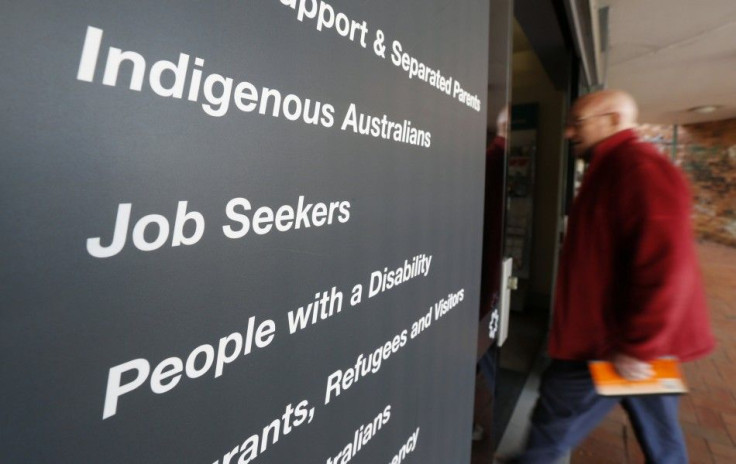Australia On The Verge of Recession Unless Abbott Government Creates Stimulus Policies

Australia could be on the brink of its first recession in nearly 25 years unless the government does something to stimulate the economy. Morgan Stanley economists led by Daniel Blake said in a research report that Australia's economy will grow 1.9 percent in 2015 with 1.5 percent coming from high value exports.
Morgan Stanley predicts unemployment rate to rise to 6.8 percent and the local currency to fall 76 U.S. cents by the end of 2015. Economists said Australia's economic transition from the resources boom has stalled. Morgan Stanley has decided to revise their forecasts and lower their figures. Economists believe future policies are crucial to avoid recession.
The Reserve Bank of Australia maintained its interest rate at a record-low 2.5 percent in the past 15 months to stimulate employment and economic growth. Australia's statistics report showed that the labour market had 24,400 fewer jobs in September with an unemployment rate of 6.2 percent.
In a report by the Wall Street Journal, optimists are expecting to see a property boom in Melbourne and Sydney which they think might offset the mining boom slowdown. However, Morgan Stanley disagreed and said most analysts are underplaying the impact of falling commodity prices on the economic outlook.
Morgan Stanley suggests Australia should implement more rate cuts and put an end to the government's tight spending policy. Reports said Prime Minister Tony Abbott is trying to lower the budget deficit that ballooned to nearly $42.4 billion in the last fiscal year.
The bank said there is a 50 percent chance the central bank will need to lower interest rates despite the statement of RBA Governor Glenn Stevens that monetary policy has done what it can. Stevens has previously warned that lowering the rate further might risk the overheating of the property market. He has called on businesses to boost the economy by making more aggressive investments.
In the past, Australia has taken measures to stimulate growth. Past governments have floated the currency, removed trade barriers, revised wages and opened the country's doors to foreign banks. The changes combined with the rising demand for Australia's resources in Asia has boosted productivity and created a recession-free environment since 1991.






